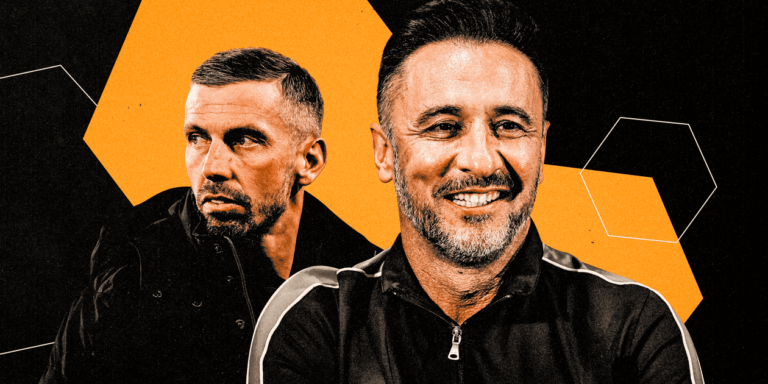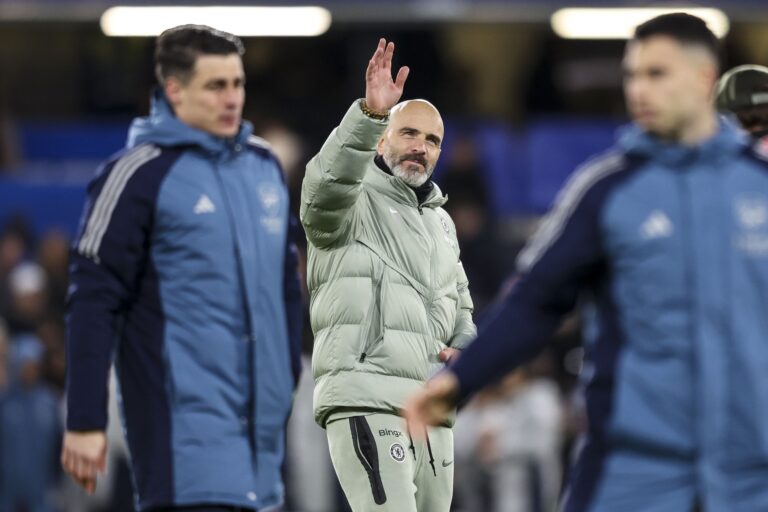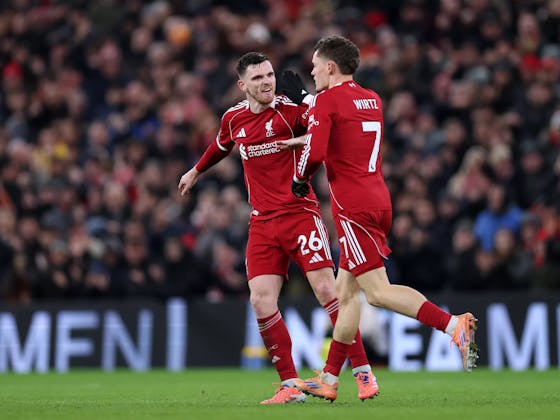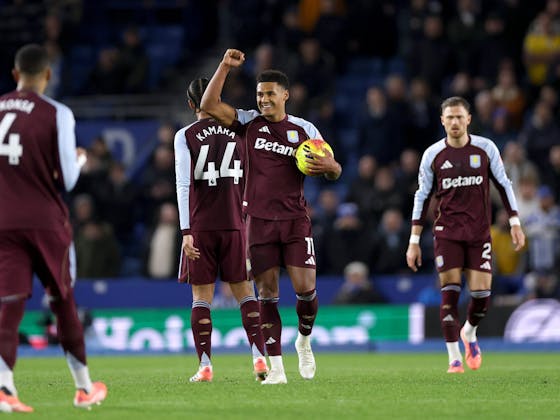
Why Wolves Parted Ways with Gary O’Neil and Reached Out to Jorge Mendes Once More
It has been over two years since Wolverhampton Wanderers last activated the Gestifute spotlight and called upon Jorge Mendes to assist them in navigating difficulties.
In the 25 months since Mendes facilitated Julen Lopetegui's arrival at Molineux, which ultimately salvaged a tumultuous Premier League season for the club, Wolves' owners Fosun have sought to reduce their dependency on the super agent, whose connection dates back to their acquisition of Molineux in 2016.
However, this weekend, as their latest Premier League campaign reached a crisis point, and after exhausting their favored options for a turnaround, Wolves turned to Mendes yet again.
Vitor Pereira's candidacy had lingered in the background for several weeks, evident to those in leadership that Gary O’Neil’s time at Molineux was nearing its conclusion.
Pereira was among the names proposed by Mendes right after the Fosun takeover. Nonetheless, the Chinese conglomerate chose Lopetegui for the role, only to later appoint Walter Zenga after the Spaniard opted for a verbal agreement with the Spanish national team.
Pereira has long desired an opportunity in the Premier League and was close to securing the Everton position in 2022, which ultimately went to Frank Lampard. Thus, via Mendes, Wolves were aware of his availability despite his current position in the Saudi Pro League with Al Shabab.

However, he did not perfectly fit their desired profile for O’Neil’s successor. If he had, the head coach who has appeared increasingly defeated for several weeks would have already been dismissed.
Instead, Wolves adhered to a model they have been trying to establish since the departure of club legend Nuno Espirito Santo three and a half years ago, attempting to attract a manager who would align with the football management structure overseen by sporting director Matt Hobbs.
The club discreetly sounds out coaches with a recent history of Premier League success or pedigree from other top European leagues, notably former Brighton and Chelsea manager Graham Potter, but none of these elite managers could be wooed.
Hobbs and executive chairman Jeff Shi, Fosun’s UK representative, had to balance the risks of sticking with O’Neil as his influence waned against the potential downturn of opting for a manager not on their preferred list.
After the chaotic events that followed Saturday’s dispiriting 2-1 loss to Ipswich Town led Shi and Hobbs to determine that supporting O’Neil was no longer feasible, they quickly decided that Pereira was the ‘best alternative’ and reached out to Mendes.
Negotiations commenced Saturday evening, with Wolves expressing a willingness to activate his Al Shabab release clause, as noted by eScored. By Sunday afternoon, a deal was rapidly advancing.
Involvement from Hobbs and Shi was substantial, with Hobbs’ role in the essential squad enhancement anticipated in January being pivotal, but it was Mendes' participation that ultimately expedited the deal.
Mendes has maintained his status as a key advisor to Shi, notwithstanding Wolves’ efforts to curtail his impact. His success in positioning another client in the managerial role at Molineux is likely to amplify that influence, at least temporarily, making this latest development feel somewhat like a return to ‘Fosun: Phase One’.
To piece together this narrative, eScored has conversed with various individuals familiar with the circumstances, many of whom requested anonymity to preserve their relationships.
On Sunday morning, O’Neil, who returned to his family home in Kent for a brief visit after the Ipswich loss, received a phone call from Hobbs, informing him of Wolves’ decision.
This would not have been surprising, considering his exit had seemed increasingly likely throughout the season. Even during his most successful moments at Wolves, signs of trouble were appearing.
In February 2024, O’Neil’s Wolves recorded notable victories against Chelsea and Tottenham Hotspur, claimed the double over both ‘Big Six’ opponents, nearly drew with Manchester United but ultimately fell 4-3 in a thrilling match at Molineux, and progressed to the FA Cup quarter-finals by defeating Brighton.
They overcame Sheffield United for good measure, and as spring approached, fans began dreaming of a potential European spot, sensing that players, management, the club, and supporters were finally in sync since Nuno Espirito Santo's departure, effectively closing the chapter on the club’s most prosperous period since the early 1980s.
Yet, the foundations for decline had already been laid.
The shortcomings of the January transfer window, in which O’Neil anticipated acquiring a striker, morphed into frustration when he found at the last minute that Wolves would not approve any of the available deals, leading to disillusionment with the club.
Neither he nor the Wolves management could have predicted the extensive injury crisis that sidelined his first-choice forwards for a significant portion of the season’s latter stages, with Pedro Neto, Hwang Hee-chan, and Matheus Cunha all sidelined for an extended period.

However, O’Neil felt that his concerns regarding Wolves jeopardizing their immediate future by failing to bolster their squad went unacknowledged. This culminated in a quarter-final exit to Coventry, with raw teenage talent Nathan Fraser leading the attack, alongside a slide from the fringe of the European qualification race to the lower half of the Premier League table, achieving only two wins in their final twelve matches.
A worrying parallel to the breakdown of trust between Wolves and O’Neil’s predecessor Lopetegui emerged, as O’Neil’s faith in the owners' ability and commitment to support him never recovered.
Sources indicate that O’Neil was frustrated for much of the transfer window, viewing the failure to secure a centre-back and a winger to replace the departed Maximilian Kilman and Pedro Neto as broken promises.
Ultimately, striker Jorgen Strand Larsen was the sole summer signing who managed to establish a position in the team, while several other notably expensive signings composed of young prospects aimed at future valuation.
Post-transfer window, O’Neil’s anger reportedly dissipated as he resolved to maximize the potential of his existing squad.
But a blend of challenging initial fixtures—the hardest opening schedule of any team in the league according to Opta’s Power Rankings—and squad inadequacies meant Wolves’ season spiraled out of control, compounded by O’Neil’s choice to alter their playing style based on anticipated transfers that did not materialize.
Ultimately, he departed Wolves with some goodwill remaining. His relationship with Hobbs remained especially solid, as O’Neil believed Hobbs had upheld his end of the agreement by preparing deals for first-team players that ultimately did not receive approval.
Senior players also continued showing support for O’Neil; however, a recent loss of discipline among the squad—from Jose Sa venturing into the crowd during the defeat to Bournemouth to Mario Lemina’s outburst at West Ham and the tumultuous incidents after the weekend loss to Ipswich involving Matheus Cunha and Rayan Ait-Nouri—suggested that while O’Neil had support, he had lost his authority.

This realization, compounded by ongoing poor results, left Wolves lacking a choice but to pursue a change. Even prominent figures within Wolves conceded that O’Neil was largely a casualty of circumstances.
The work he accomplished last season, stepping in for a squad shaken by Lopetegui’s pre-season exit and guiding Wolves away from relegation danger while securing memorable victories and high-profile wins, earned him considerable respect in the Molineux hierarchy.
Moreover, the club’s decision-makers were acutely aware that those key injuries toward the season’s end, coupled with a brutal fixture schedule at the start of this one, severely dismantled the momentum he had built.
Nonetheless, several choices haunted the young, inexperienced head coach.
His significant involvement over the summer in the hiring of Jack Wilson as Wolves' first set-piece coach, only to revert to the decision and remove Wilson three months later—due to what people close to the situation claimed was his poor integration into the coaching staff—raised concerns.
Both with and without Wilson, Wolves' shortcomings in defending set pieces have remained persistent.

This episode called into question O’Neil’s decision-making, further highlighted by his recent decision to strip Lemina of the captaincy following the Gabon international's meltdown after the defeat at West Ham, after appointing him in the summer to replace Kilman as skipper. Lemina, 31, engaged in an altercation with West Ham’s Jarrod Bowen post-defeat, then quarreled with teammates Nelson Semedo and Toti, pushing first-team coach Shaun Derry in the process.
The tactical switch and shape change, adopting a back four early in the season, also posed an unnecessary risk for O’Neil, inciting criticism since the previous setup featuring three center-backs and a counter-attacking approach had functioned well until injury problems arose, with the metrics for expected goals for and against trending unfavorably this season.

With O’Neil increasingly perceived as unable to adequately tackle the immediate defensive and man-management challenges he was facing, the Wolves management came to the conclusion that an individual with greater experience and gravitas was required.
The extent to which Mendes' influence will return remains uncertain. When Lopetegui arrived with Mendes' assistance two years back, there followed a substantial January spending spree, with Mendes also involved, leading to nearly £100 million being spent on signings including Cunha, Lemina, Craig Dawson, Joao Gomes, and Pablo Sarabia.
There are numerous reasons why Wolves might hesitate to replicate that approach.
The unplanned excessive expenditure played a significant role in creating the profit and sustainability rules (PRS) issues that compelled a fire sale of assets merely six months later to avert potential sanctions.
Wolves have dedicated time and resources both preceding and following that phase to transition to a more traditional recruitment strategy, with Hobbs overseeing the sourcing of lower-cost signings designed to enhance their value and ensure resale profitability.
Fosun has also envisioned for Wolves’ football operations to achieve self-sufficiency.
However, there is a genuine acknowledgment that the summer 2024 window did not bolster the first team, and to provide Pereira a fighting chance at reversing their fortunes, ready-to-play additions are crucial in January. Sales will eliminate PSR concerns, but funds must be sourced within the club.
As Wolves pursue new signings—particularly at the center-back position, which is a January priority—there exists a tangible likelihood that Mendes will play a role.
Despite previous success in delivering a host of impactful players including Ruben Neves, Raul Jimenez, Joao Moutinho, and Rui Patricio, the relationship between Mendes and Wolves has experienced tensions at various points.

The acquisitions of Matheus Nunes and Goncalo Guedes from his roster in the summer of 2022 were perceived as costly missteps—though Wolves turned a profit on Nunes when he transferred to Manchester City a year later—while there was frustration two years ago when Mendes appeared to lean on Gomes to opt for Lyon, another club with which he has close ties, rather than Wolves.
Additionally, his relationship with Lopetegui reportedly deteriorated during the latter's tenure at Wolves, as the two disagreed on Mendes' recruitment recommendations.
The choice to appoint O’Neil in lieu of Lopetegui represented the first decision made by Fosun devoid of Mendes' involvement.
Despite this, Mendes' connections with Shi and the ownership group have remained intact, even amid Hobbs’ growing prominence and power in recent times.
The unexpected signing of Andre, the Brazilian midfielder associated with a South American agent linked to Mendes, hinted at his continued influence, especially considering that O’Neil had not prioritized that area of his squad for enhancement.
In their time of need, Wolves have once more turned to Shi’s most established footballing contact. With critical months ahead, Mendes appears to be a significant figure at Molineux again.
(Top photo: Getty Images; design: Dan Goldfarb)





